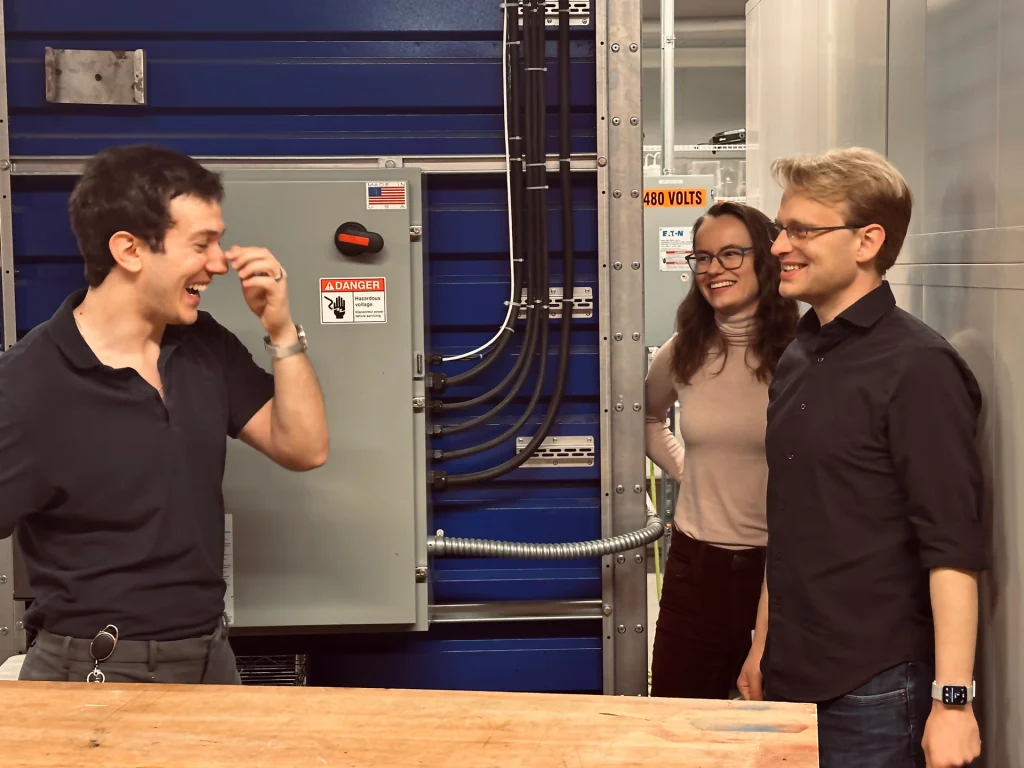Lithium-ion battery prices have dropped nearly 90% since 2008, the year that Tesla released its first electric car. Since batteries are the most expensive part of an EV, that’s a big part of the reason that the cars are finally getting close to price parity with gas cars. But lithium prices are volatile, and batteries are still relatively expensive. To help make EVs much more affordable, one new startup from a former Tesla engineer is making batteries from sodium instead.
“In short, we’re trying to make the $25K Tesla actually possible,” says Spencer Gore, CEO of the startup, Bedrock Materials, which announced a seed round of $8.5 million today.
When Gore worked on EVs at Tesla a decade ago, the price wasn’t the primary concern. “The focus of the entire battery industry was on performance and energy density,” he says. “We were trying to increase the range of cars to get rich people to buy them, and the cars were $140,000—cost really wasn’t that important. It was energy density and it was charge rate.”

Now, though, it’s common for an EV to have 300 miles of range on a charge. But automakers are struggling with the cost of batteries. Sodium-ion batteries are cheaper because sodium is more abundant and easily accessible than lithium. The change in battery chemistry also makes it possible to eliminate some other expensive materials. Copper, for example, can be replaced with cheap aluminum. (Lithium-ion batteries can’t use aluminum because lithium degrades the metal.) Sodium-ion batteries can also replace graphite with a less expensive material.
The switch in chemistry has environmental and supply chain advantages. The new batteries don’t use cobalt, a material linked to pollution and horrific conditions in mines, including child slavery. Instead of nickel, which also pollutes during mining, the new batteries use less-polluting iron and manganese. The sodium itself can come from a cheap mineral called trona that’s abundant in places like California and Wyoming, giving easier access to a domestic supply chain for U.S. automakers.
The catch: Sodium-ion batteries don’t store as much energy as lithium in the same size. But as the latest generation of battery components come out, “it’s looking almost certain that sodium-ion will get better than lithium-ion phosphate, the cheapest lithium-ion,” says Gore. It’s possible to get 300 miles of range with a sodium-ion battery with a slightly larger battery. (The battery would add roughly the weight of an extra passenger, which Gore says wouldn’t be problematic for a mass market EV, but wouldn’t work as well in a sports car.)
The startup’s technology was originally developed at Argonne National Labs in Chicago, and Bedrock’s new headquarters is now near the lab. They expect to be in pilot production in three years, and mass production in four years. “Today, we’re producing material on a kilogram scale, and we’re constantly tweaking and improving the material,” Gore says. The biggest challenge will be scaling up production. At a smaller scale, the batteries can be used in other applications, from electric bikes and scooters to forklifts.
There’s already demand for this in cars, Gore says. “Almost every automaker that we’ve spoken to is looking at sodium-ion technology in one capacity or another,” he says. “Some are more serious than others. It’s pretty obvious why—they’re all under serious pressure to reduce their costs for electric vehicles and become profitable.”
In China, some automakers are already beginning to use their own version of sodium-ion batteries. A brand called Yiwei started exporting the first EVs using sodium-ion batteries earlier this year.